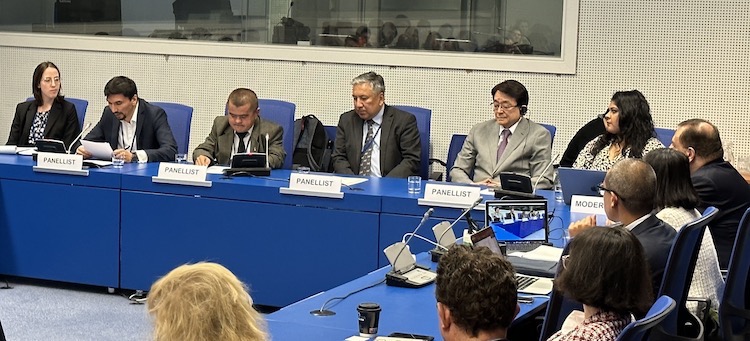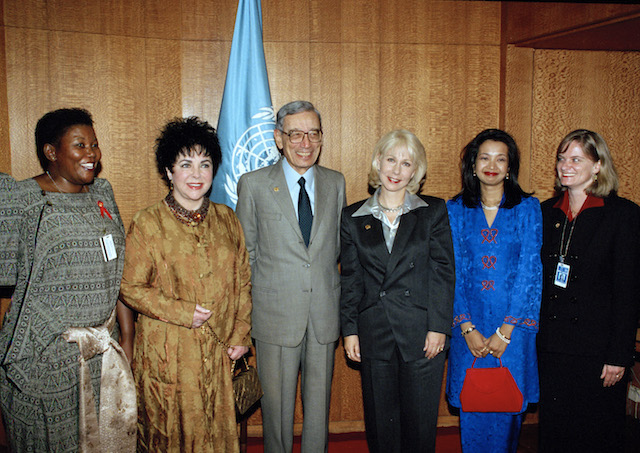By Yossef Ben-Meir* Marrakech, Morocco | 4 June 2025 (IDN) — The Kingdom of Morocco is taking the wise measure of building 36 storage facilities that will serve the people’s serious needs during severe crises, should they ever arise, such as with the horrifying 2023 earthquake in the High Atlas region. Ancient knowledge captured in […]
Improving Cities — from Space
By Ladislav Charouz and Kareff Rafisura* BANGKOK | 2 November 2024 (IDN) — Despite offering a range of opportunities, urbanisation poses a set of unique challenges to sustainable development. The rapid expansion of cities often results in the growth of informal settlements, with East and South-East Asia being home to 370 million people living in […]
UN Health Agency Warns of Imminent Famine in Gaza
By Jaya Ramachandran GENEVA | 18 March 2024 (IDN) — The situation in Gaza is catastrophic, and northern Gaza faces imminent famine. According to the latest analysis from the Integrated Food Security Phase Classification (IPC) partnership released today, the rest of the Strip is also at risk. Over a million people are expected to face […]
Kazakhstan Continues to Suffer Awful Impact of Nuclear Tests
By Aurora Weiss VIENNA. 4 August 2023 (IDN) — The Central Asian Republic of Kazakhstan, along with Japan and other Pacific Island states, is one of the most challenging in terms of the consequences of testing or use of nuclear weapons. Being a young state, Kazakhstan is facing a very heavy heritage and its difficult […]
Nations Pledge to Improve Refugee and Migrant Health
By Bernhard Schell RABAT, Morocco, 16 June 2023 (IDN | WHO) — One in eight people worldwide is either a migrant or is forcibly displaced by factors including conflict, persecution, environmental degradation, or the lack of human security and opportunity. With this in view, United Nations member states and several UN agencies have adopted a […]
HIV/AIDS Killed 40 Million People, And Continues To Kill 4000 A Day
By Somar Wijayadasa* | IDN-InDepthNews Analysis
Secretary-General Boutros Boutros-Ghali (third from right) meets with the keynote speakers at an event on the occasion of the World AIDS Day, with the theme “One world. One hope” on December 2, 1996 at the UN Headquarters. From left to right: Martina Clark; Marina Mahathir; Cristina Saralegui; Secretary-General Boutros Boutros-Ghali; Elizabeth Taylor and Noerine Kaleeba. | Credit: United Nations, New York – Photo # 158026
NEW YORK (IDN) – The World AIDS Day, observed on December 1 every year, inspires me to recall how the United Nations acted – hesitantly but resolutely – when the AIDS pandemic killed millions of people around the world causing a substantial impact on the health and economy of many nations.
Since the first identification of HIV/AIDS among gay men in the United States of America, in 1981, approximately 76 million people have been infected with HIV, and 39.6 million people have died of AIDS – the highest global death toll of all time, and also the most politicized, feared and controversial disease in the history of modern medicine.
Japan’s Development Agency Assisting Kenya’s Fight Against TB
By Robert Kibet | IDN-InDepthNews Feature
NAIROBI (IDN) – Catherine Nduta, 26, was diagnosed with Multi Drug Resistant Tuberculosis (MDR-TB) in 2012, when she was a third year student at one of Kenya’s universities, where she was undertaking a civil engineering course.
“I was almost 6-month pregnant hence couldn’t start MDR-TB treatment. I was to either terminate the pregnancy for me to start medication or continue with normal TB medication until I give birth,” Nduta told a forum organized by StopTB Partnership Kenya, that attracted Kenya’s Members of Parliament (MPs).
“I finally underwent induction and my baby was removed prematurely for me to start medication. 12 months of injections and 24 months of taking 18 pills a day: life was hard,” says she, now mother of one son. Nduta is not a lone sufferer of MDR-TB. Nairobi and Mombasa, Kenya’s two biggest cities, host the highest number of normal tuberculosis cases due to poor urban settlements and high population.
WHO Warns Of A Post-Antibiotic Era
By Martin Khor* | IDN-InDepth NewsAnalysis
GENEVA (IDN) – The World Health Organisation (WHO) has sounded a loud alarm bell that many types of disease-causing bacteria can no longer be treated with the usual antibiotics and the benefits of modern medicine are increasingly being eroded.







